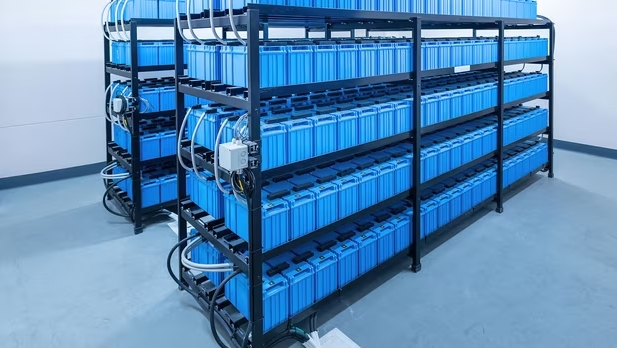Uninterruptible Power Supply (UPS) systems are critical for providing backup power during outages, and the performance of these systems heavily depends on the type of battery used. Among the various options available, lead-acid batteries remain a popular choice due to their reliability and cost-effectiveness. However, selecting the right lead-acid battery for a UPS system requires careful evaluation of several factors.
1. Battery Type
Lead-acid batteries are available in two main types: flooded and valve-regulated lead-acid (VRLA). Flooded batteries require regular maintenance, such as topping up with distilled water, and are best suited for environments with proper ventilation. On the other hand, VRLA batteries, including Absorbent Glass Mat (AGM) and Gel batteries, are sealed and maintenance-free, making them ideal for indoor use or areas with limited space.
2. Capacity and Runtime
The battery’s capacity, measured in ampere-hours (Ah), determines how long it can provide power. It’s crucial to calculate the load requirements of the UPS system and select a battery with sufficient capacity to handle the desired runtime. Oversizing the battery can offer extended runtime but may increase costs and require more space.
3. Cycle Life
Lead-acid batteries degrade over time and with repeated charge-discharge cycles. The cycle life of a battery, or the number of cycles it can endure before its capacity drops below a specified level, is an essential consideration. Choosing a battery with a higher cycle life can reduce replacement frequency and overall costs.
4. Operating Environment
The operating temperature and installation environment significantly impact the performance and lifespan of lead-acid batteries. Most batteries operate optimally at 20-25°C. High temperatures can accelerate battery degradation, while extremely low temperatures may reduce capacity. Ensure the UPS installation site has a stable and controlled environment.
5. Manufacturer and Warranty
Select batteries from reputable manufacturers that adhere to international quality standards. A comprehensive warranty is also critical, as it offers assurance and protection against potential defects or performance issues.
By evaluating these factors, businesses and individuals can make informed decisions and ensure the reliability of their UPS systems.


